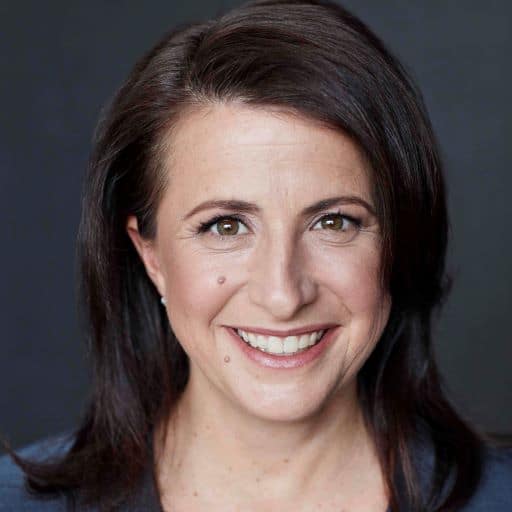With an influx of migrants over the past decade, Germany is reconciling to rapidly changing demographics. The idea of German identity is evolving.

A woman holds a German flag high. Photo illustration by News Decoder.
This article was produced exclusively for News Decoder’s global news service. It is through articles like this that News Decoder strives to provide context to complex global events and issues and teach global awareness through the lens of journalism. Learn how you can incorporate our resources and services into your classroom or educational program.
When Indian-American Shuchi Thanawala worked as an academic in Munich she found it hard to fit in.
“There were so few people of colour that we would wave at each other across the street,” Thanawala said at the time.
But this was in the early 1990s when people of colour were a small minority in Germany and belonging meant having four grandparents with German names.
Since then, Germany has become a more open country and one of the top European Union destinations for immigrants. A record 1.2 million refugees were welcomed in 2015 and 2016 and recent government policies have eased restrictions on skilled workers as the country tries to offset its aging population.
Today one in four people living in Germany are first or second-generation immigrants and Germany is home to more than a million people of African descent and 5.5 million Muslims.
But Germans are divided over the diversification of their country.
As the population gets more diverse, hostility rises.
While many people recognise how immigrants have contributed to Germany’s economic growth, cultural fabric and demographic stability, a growing number are hostile toward immigrants and people of colour.
There were more than 11,500 hate crimes reported in 2022, a 50% increase over five years, according to government data.
Germany’s Muslims and Blacks face particularly rampant hatred and discrimination. At least one third of Muslims have experienced hostility because of their religion according to a recent German Interior Ministry report.
Muslim men are widely believed to have an affinity for violence and patriarchal values, the report said. And women who wear the hijab experience public resentment in “dramatic forms” in their daily lives.
According to a 2020 survey, Black people in Germany confront discrimination and racism in every aspect of their lives. Some 90% said they feel exoticized and have had their hair grabbed without being asked. One woman anonymously shared how an elderly lady asked whether her hair was real and then pulled it.
“I was paralyzed for at least 30 seconds,” she said. “I just couldn’t believe it.”
The German far right rallies around immigration.
A majority of Black people in Germany said they have been treated as criminals and 60% said they had been asked if they sell drugs. One man shared his experience of a neighbour calling police when he and his brother were watering plants for his grandmother, who is white.
“They accused us of breaking and entering and didn’t allow us to explain ourselves,” he said.
Germany’s loudest racist and anti-immigrant voices are members of the far-right Alternative for Germany party (AfD). The party’s support, which reached 20% in June, comes mostly from formerly communist regions. There, the AfD blames immigrants for the region’s lower prosperity.
Those who remember Germany’s Nazi rule, that led to the murder of millions of European Jews and others, are particularly concerned. Supporters of the AfD are 10 times more likely to think that Nazi crimes are exaggerated than voters for other parties.
In a German podcast interview in August, the German Minister for Immigration, Reem Alabali-Radovan, acknowledged this sentiment. “I understand people (of colour) who say: I am scared and I have my suitcases packed,” she said.
Alabali-Radovan grew up as a refugee in eastern Germany. She said that the country needs better communication about the benefits of migrants in Germany especially now as more than a million Ukrainians have taken refuge in the country.
A long history of ethnocentrism
Helmut Hartmann is a German Jew who survived the Holocaust and still lives in Germany. He remembers when Black American soldiers arrived in his Bavarian hometown in 1945 and threw chocolates from their trucks to the children. It was the first time he’d seen a non-white person.
“We rejoiced and cheered,” Hartmann said.
Now, he is alarmed at the rate at which right-wing parties are growing. “In Germany, not only stupid statements are heard, but also dangerous ones,” he said.
Some experts say that growing racism stems from mounting German feelings of economic insecurity and pessimism about the future.
According to political scientist Michael Bröning, Berlin appears to be trying to defuse these concerns by increasing the minimum wage, keeping energy costs affordable and bolstering social welfare.
But anti-racism advocates are asking for more concrete initiatives including new anti-racism institutions, a strategy to promote people of colour to positions of authority and training for educators, civic leaders and police officers.
And as economists call for 1.5 million new immigrants a year to maintain the number of workers, the pressure is mounting to create a more caring and inclusive society.
Racism is a “reality” of Germany, the country’s Chancellor Olaf Scholz declared on Twitter in July: “A reality we must overcome together.”
questions to consider:
- Why does Germany struggle with the concept of diversity?
- What are some misconceptions that immigrants to Germany face?
- Is what is happening in Germany similar or different from what is happening in your country? If you live in Germany, how do you feel about people coming from other places to live in Germany?

Katharine Lake Berz is a management consultant and writer, and a fellow in the Fellowship in Global Journalism at the University of Toronto. She was a consultant at McKinsey & Company for 10 years and has since advised a number of not-for-profit organizations. She holds a Bachelor of Commerce from Queen’s University in Kingston, Ontario, and a Master of Philosophy in International Relations from Cambridge University.
Check out more News Decoder stories about immigration:
